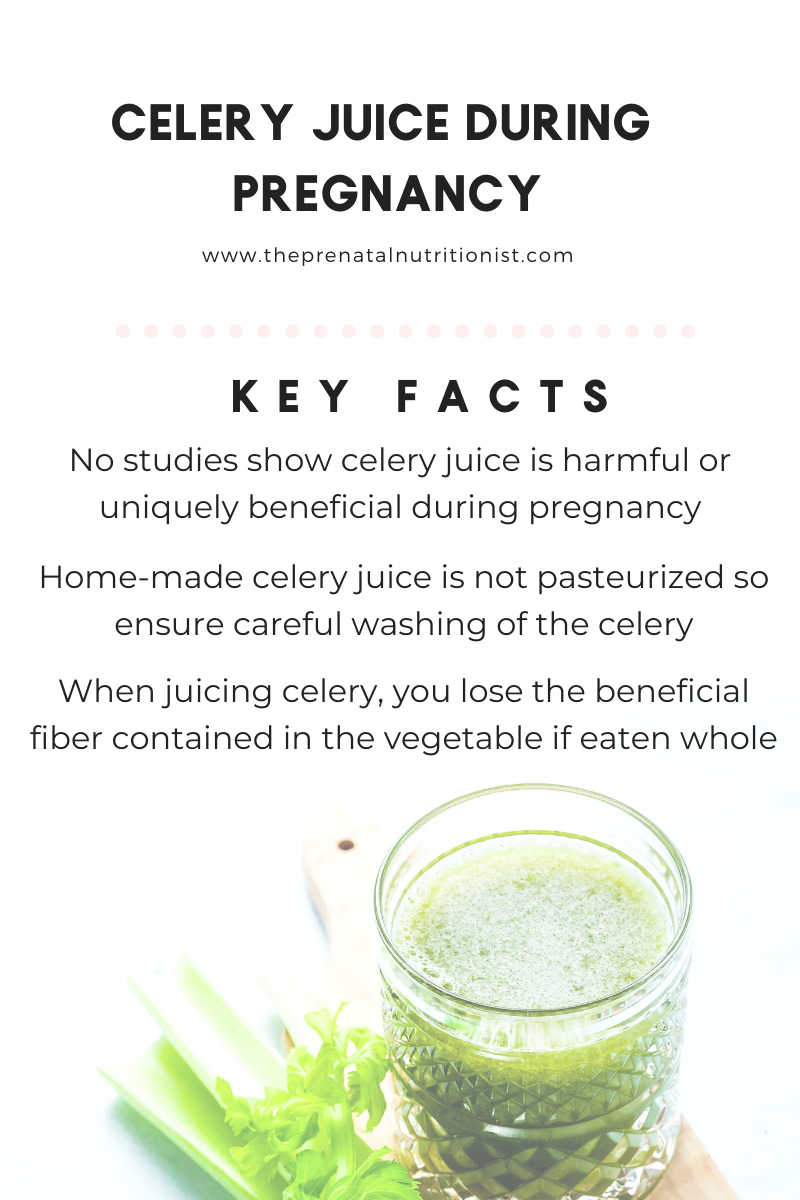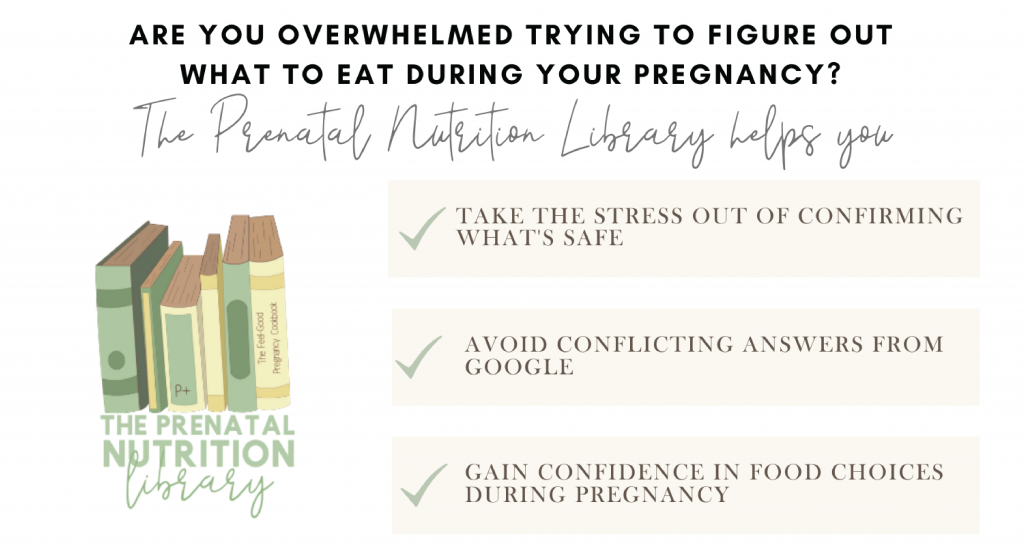Celery Juice during Pregnancy: Is it safe?
What is it?
While there is nothing new or revolutionary about juicing, it has returned to the spotlight after a popular book and a few popular “medical public figures” have touted it as a miracle juice but do you know the nutrition behind celery and celery juice?
It has taken the world by storm on Instagram as the newest selfie sidekick paired perfectly with a metal straw.
The idea is to juice 3 or more stalks of celery and consume it first thing in the morning before you eat anything else.
Although there isn’t much research backing it, people report changes in their bowel movements, skin, as well as other internal benefits, after starting this daily habit. We are taker a deeper look into the safety of celery juice for pregnancy and if there are any potential benefits.
Is celery juice safe during pregnancy?
There is no research suggesting celery juice causes harm during pregnancy. But there is also no research suggesting specific benefits during pregnancy.
Many pregnant women are told juicing while pregnant is not safe because most fresh juices are not pasteurized. Pasteurization is a heat-treating process that reduces the chance of bacteria growth (1).
If you juice celery at home, it will not be pasteurized. When buying celery juice at a store or a juice bar, check the label or ask if the celery juice is pasteurized before consuming.
If you do decide to consume home-juiced celery during pregnancy, ensure the celery has been carefully washed prior to juicing it.
Eating whole celery during pregnancy is perfectly safe and has health benefits. Increasing your vegetable intake can help increase micronutrients, prevent constipation, and play a role in fetal and infant growth (2).
Nutrient breakdown, whole celery versus celery juice
Eating whole celery versus drinking it is different nutritionally. And yes, it is safe to eat celery. It is a good potassium and folate source.
Juicing celery requires much more celery than you could eat raw in one sitting with your favorite veggie dip.
A 16-ounce celery juice usually contains around 9 stalks, although you can use less to sip a little green juice.
Due to using a much larger quantity of celery in juice creation, the nutrients you obtain are higher, appealing to women trying to increase their nutrient intake during pregnancy.
In one large stalk of celery:
Calories: 9 calories
Carbohydrates: 1 g
Sugar: 0.9 g
Fat: 0 g
Protein: 0.4 g
Fiber: 1 g
Potassium: 166 mg
Calcium: 25.6 mg
Sodium: 51 mg
In an 8 oz. glass of celery juice:
About 3-4 large stalks
Calories: 42 calories
Carbohydrates: 9 g
Sugar: 6 g
Fat: 0 g
Protein: 2 g
Fiber: 4 g (with pulp, so if you blend it, not juice it)
Potassium: 670 mg
Calcium: 100 mg
Sodium: 215 mg
All values provided by the USDA nutrient database.
Celery Juice Benefits For Pregnancy
Celery, raw or juiced, is mainly composed of water, hence it can help keep you hydrated and is safe for pregnant women.
It is important to increase fluid intake as your pregnancy progresses because body weight and blood volume are changing rapidly.
People who drink celery juice regularly report increased or better-regulated bowel movements, although not everyone will receive these benefits.
Again, you are likely to see this benefit also from eating whole celery due to the fiber content.
This can be beneficial to pregnant women because a common symptom of pregnancy and taking some prenatal vitamins is constipation. If you find yourself struggling with constipation, check out The Prenatal Nutrition Library for guidance on how to manage constipation during pregnancy.
One study in rats suggests celery seed helps lower blood pressure (3). A study in China showed celery juice specifically reduced blood pressure in 14 of 16 patients (4).
There are no studies showing celery juice affects blood pressure in pregnancy specifically.
Are There Potential Side Effects of Drinking Celery Juice While Pregnant?
As stated above, there is no research suggesting celery juice is harmful in pregnancy, however, there are no specific benefits to consuming celery juice during pregnancy.
Drinking the juice of any fruit or vegetable typically means you will be ingesting more sugar. While this is sugar naturally found in the produce, it still contributes to the rise in your blood sugar.
Secondly, the fiber content is lost when you juice celery.
The fiber in foods helps to keep us full and helps regulate our bowel movements. This is important during pregnancy due to the increased chance of constipation.
Dismissing the fiber in this vegetable would not be utilizing it in its best form. To keep some of the fiber, blend the celery as opposed to juicing it or wash it and enjoy it raw or in a soup.
Bottom line
Celery and celery juice are generally safe during pregnancy. Remember to wash all produce thoroughly before consuming it and verify if store bought juice is pasteurized.
While it is recommended that you do not start anything new during pregnancy, increasing your vegetable intake has many benefits and celery juice can contribute to your overall fluid intake.
If you enjoyed celery juice prior to becoming pregnant, and still find it appealing when pregnant, it is fine to continue including it in your diet whether at home or when visiting your favorite juice bar.
By Lauren Gannon, Dietetic Intern and Ryann Kipping, RDN, CLEC | Owner & Founder










